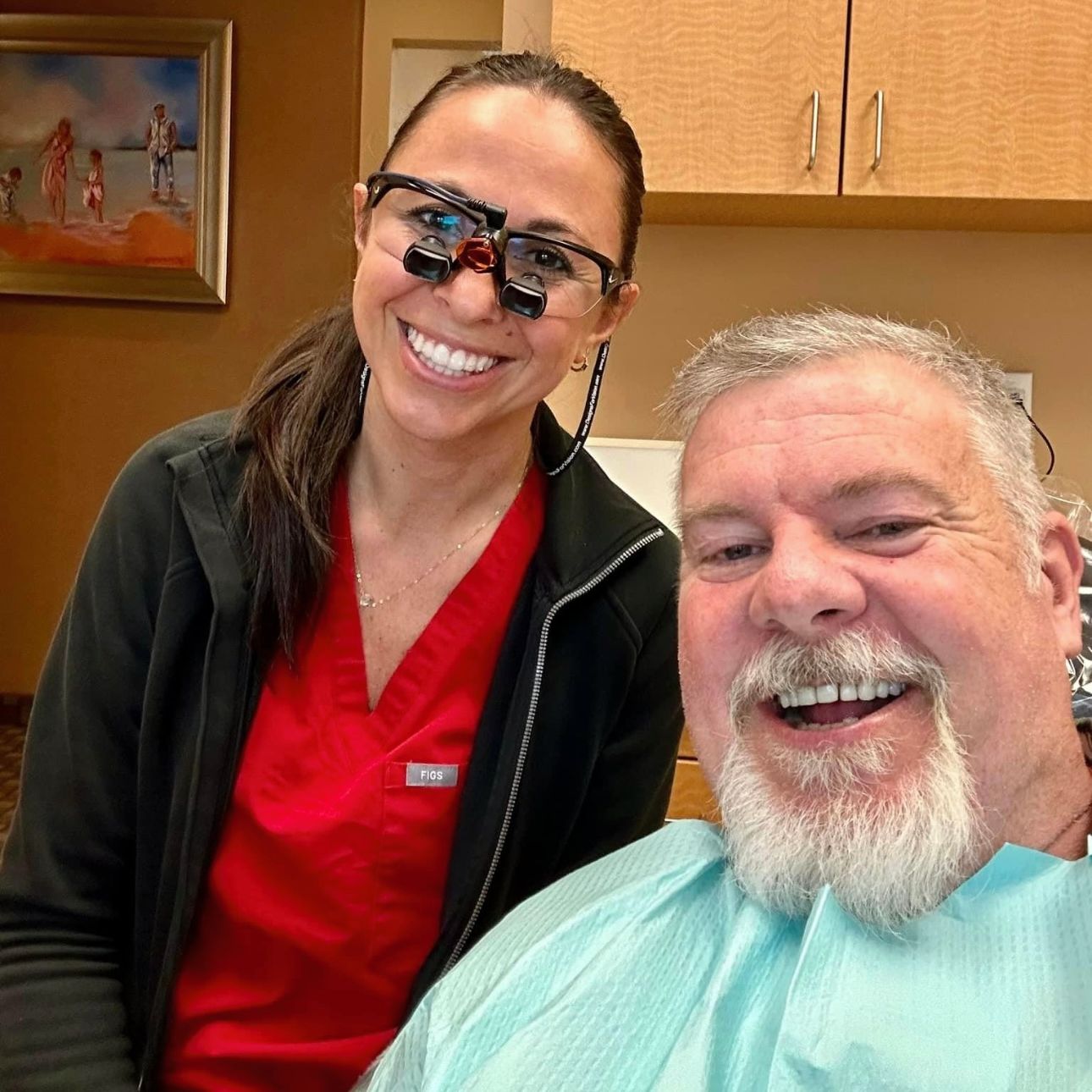What is That Lump?

It is not unusual to feel raised lesions on the inside of your mouth. While they are most often harmless, they should always be removed by biopsy and sent to a lab to confirm that diagnosis and to make you more comfortable.
The majority of these abnormal growths are called fibromas or granulomas. They are made of hard, smooth scar tissue.
Fibromas develop on the surface inside the lips and cheeks or on the tongue and are caused by repeatedly biting or chewing the area. If the damage continues, fibromas can be continuously aggravated and become larger and more irritated.
Granulomas are similar to fibromas but appear on the gums.
Fibromas or granulomas may appear as:
- Unusual bumps in the mouth
- Rough surfaces on the lips, cheeks or gums
- White patches on the lips, cheeks or gums
Why Have a Biopsy?

Dr. Aldredge may discover a fibroma or granuloma during a comprehensive periodontal exam. There are three reasons he will recommend the lesion be removed right away:
To end or prevent discomfort from irritation. Chewing or biting the surface is how a fibroma develops. The bigger the lesion gets, the more it is subjected to injury and the more painful it becomes.
To make the biopsy easier. The smaller the lesion, the easier it is to remove with the least discomfort.
To confirm the diagnosis. While fibromas are almost always benign, more serious lesions can mimic their appearance. Excise the tissue and sending it for testing can rule out other causes.
What to expect
Excisional Biopsy
With a fibroma or granuloma, Dr. Aldredge will perform an excisional biopsy. In this simple procedure, he will numb the area and use a scalpel to completely remove the lesion. Depending on the amount of tissue removed, he may place sutures.
Incisional Biopsy
Dr. Aldredge almost exclusively works with excisional biopsies. In the unusual event that he suspects an irregularity should be looked at more closely, he will take a sample of the lesion rather than entirely removing it, and will send it to a pathologist for diagnosis.
A biopsy removes the constant irritation of a fibroma or granuloma, along with the speculation of what is causing it. Call our office for more information.



